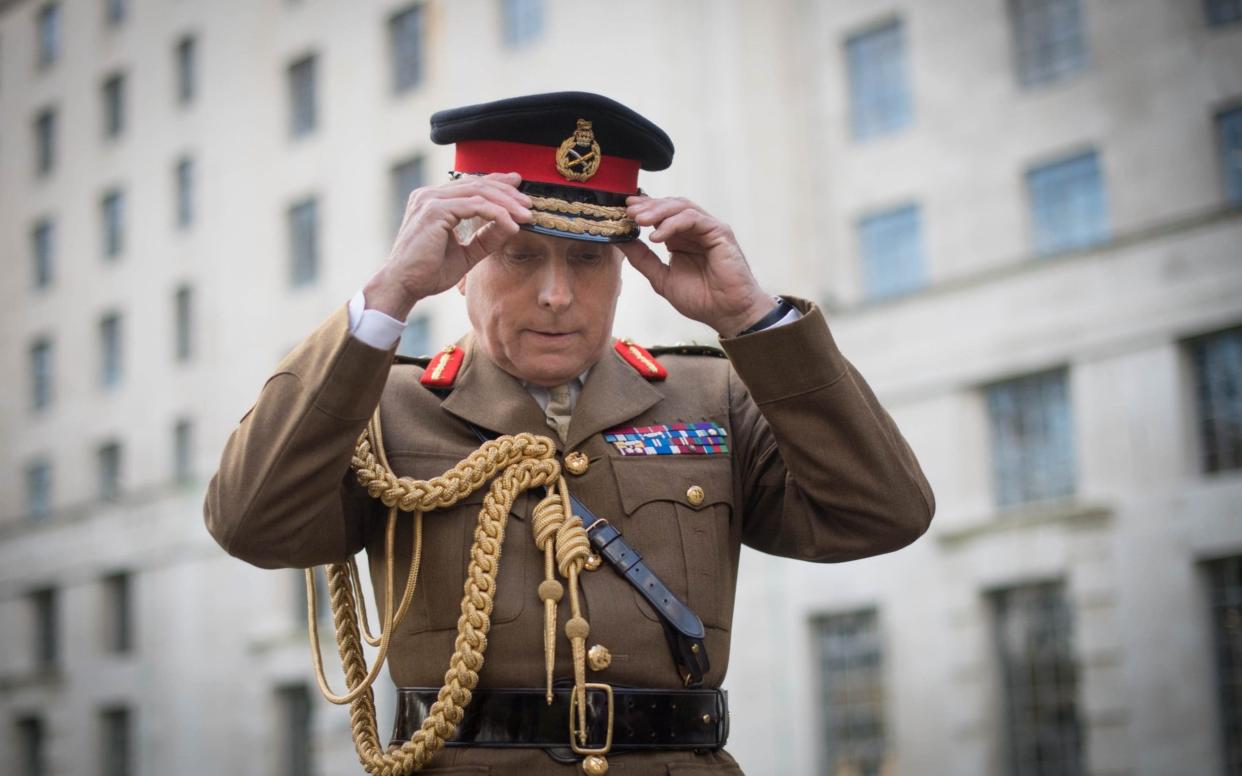Exclusive: Armed Forces chief stays on to lead overhaul of military

The head of the Armed Forces will remain in post until the end of the year to oversee an overhaul of the military, Number 10 will announce on Friday.
The Telegraph understands Downing Street will confirm that General Sir Nick Carter's tenure as Chief of the Defence Staff (CDS) will be extended until the end of the year so that he can lead the transformation of the military following the Integrated Defence Review.
The review, which will be published later this month, will address how the military needs to adapt to the changing face of warfare and is expected focus on space and cyber defence.
A defence source said it was Boris Johnson's decision to keep Sir Nick in his position in order to ensure "continuity and stability" as the military prepared to fight the "threats of tomorrow". The source added that it "makes sense" to keep Sir Nick in post to ensure that the changes stemming from the Integrated Review were delivered.
The review will underscore Mr Johnson's post-Brexit "Global Britain" vision and comes after he awarded the Ministry of Defence £16.5 billion in extra funding – the biggest cash injection since the end of the Cold War.
Sir Nick, alongside Ben Wallace, the Defence Secretary, is seen as central to crafting the "vision for defence", having authored the Integrated Operating Concept, which sets out a new strategic approach to defence that aims to integrate new technology with more traditional war-fighting skills.
Sir Nick, 62, in his third year as CDS, was due to retire in June but said in a previous interview with The Telegraph that it remained "entirely possible that I will be asked to serve beyond June". He is said to be "honoured" to continue in the role.
It is understood that the position of CDS has never been one of fixed terms in order to "keep the right person in the post with the right skills at the right time".
Meanwhile, senior Whitehall insiders said Sir Nick was angered by reports earlier this year that he had fallen out of favour with the Prime Minister and would be made to leave the role earlier than anticipated. The allegations were described as "categorically untrue" and "a scurrilous hit job on someone who has committed their entire life to public service and defending this nation".
It comes as Sir Stephen Lovegrove, the Ministry of Defence's permanent secretary, is due to move to the Cabinet Office as its new National Security Adviser. With his replacement still to come, it is felt that keeping Sir Nick in place also helps to have "some continuity at head of military while the new guy beds in".
Another senior Whitehall source said keeping Sir Nick in post as Sir Stephen moved to the Cabinet Office at the end of this month "makes lots of sense".
"Why would you want the double dip disruption of both of them moving at the same time?" the source said, adding that a number of "quite big things happening this year" would benefit from the continuity.
The deployment of aircraft carrier HMS Queen Elizabeth, as well whether Joe Biden, the US president, withdraws troops from Afghanistan on May 1 were both cited as other reasons for having a steady hand at the helm.
The source added that the longer Sir Nick remained in place, the longer Mr Wallace had to see if the potential candidates who might replace him "are delivering".
While no decision has been made as to who will succeed Sir Nick, potential contenders include General Sir Mark Carleton-Smith, 57, the head of the Army and a former director of Special Forces, and General Sir Patrick Sanders, 54, Commander of Strategic Command, whose current role includes overseeing offensive cyber and other cutting-edge technologies.
Lord West, the former first sea lord, has called for Admiral Tony Radakin, 55, the current First Sea Lord, to take up the role, having previously told The Telegraph that due to threats from Russia and China at sea, "it's probably a good idea to have a maritime CDS".

